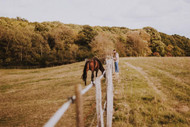There’s been a lot of press recently about the public feeding horses and ponies potentially deadly “treats” as they roam around the countryside during the Covid 19 lockdown.
People seem to be moved to feed even obviously well-fed horses and ponies in fields they pass by with food they’ve either brought with them for the purpose, or picked on the wayside.
The intentions are good. Ramblers want to befriend our equine friends on their walks, and entice the animals to the fence for petting.
It’s time to share far and wide on social media and by word of mouth that equines have sensitive digestive systems … many of them are on special diets for various reasons … and feeding horses willy-nilly can be deadly!
We thought we’d pass on 10 things that horses should definitely not eat – things that may be fed to them over the fence – and the possible consequences if they do consume them:
Tomatoes
Those juicy red fruits probably look like a tasty apple to a horse or pony. They taste good to humans, so we’re likely to imagine horses will enjoy them too. Fortunately that’s not so – in most cases horses don’t lake the taste of tomatoes or tomato plants. That’s just as well because tomatoes are related to nightshade and other toxic plants like horse nettle. Tomatoes contain atropine, which can cause colic, and hyoscyamine, which can increase heart rate, cause constipation or diarrhoea, and decrease saliva levels.
Garlic and onions
These members of the Allium family (which also includes leeks, shallots and chives) contain the chemical N-propyl disulfide, which damages red blood cells, and in turn can lead to anaemia. Yes, its true that many horse supplements and treats contain garlic, but it’s a matter of quantity. Garlic can be useful for its insect-repellent properties, and it helps with things like respiratory problems, but it should be used in moderation. The recommended amount for feeding horses is half an ounce to 2 ounces per day depending on the horse or pony’s size. Commercially it comes in several forms for equine use – powder, freeze dried granules.
Cabbage, Broccoli & Cauliflower
Members of the cruciferous family, these vegetables contain a sugar known as raffinose, which causes intestinal gas. We all know that horses can be gassy at the best of times, but an overdose feeding horses these foods could cause gas-related colic with severe abdominal pain at best, and at worst be fatal.
Rhubarb
Rhubarb leaves, which contain high levels of calcium oxalates, are toxic to many animals – even humans. Eaten in large quantities they can damage digestive and urinary systems, leading to possible kidney failure.
Avocado
The fruit, stone, leaves and bark of the avocado tree are all highly toxic for horses. Eating avocado can cause an irregular heartbeat, restricted breathing and colic.
Lawn Clippings
Horses may well graze on grass, but that doesn’t mean they should be fed lawn clippings. As soon as grass is cut it starts to ferment, and when consumed carries on fermenting and expanding in the horse’s stomach, leading to colic and even potentially rupturing the stomach. Feeding horses a load of lawn clippings is also dangerous because the clippings could well contain other plants that may be toxic to horses.
Bread
Bread – and all baked goods – are processed foods that horses’ digestive systems aren’t able to break down properly, leading to an obstruction in the gut, causing colic.
Chocolate
It may be considered a treat by humans, but chocolate is a no-no for horses, like it is for dogs. It contains theobromine, a chemical that is pure poison for horses in large quantities, causing seizures and internal bleeding.
Meat
Horses are herbivores and wouldn’t generally eat meat or fish, but who knows if they may choose to chow down on something strange thrown into their field! Their digestive systems aren’t designed to cope with meat products. There’s no evidence of any immediate harm caused by ingesting a bit of meat, but the jury’s out on any side effects in the long term. Interestingly there are many stories about “carnivorous” horses being fed meat and fish in situations of dire need. Best to steer clear of feeding horses a hamburger though!
Dairy Products
Horses are lactose intolerant, so consuming ice cream, cheese, yoghurt and the like is not a good idea for your equine friend. Too much dairy could cause severe diarrhoea and other digestive problems.
Spread the Message
Of course there are numerous plants “in the wild” that are toxic to horses, and as horse owners we all know to avoid things like sycamore, ragwort, buttercups, foxgloves, rhododendron and so on. While we have control of making sure our horses avoid these, its not so easy to control what well-meaning members of the public feed our horses when we’re not looking!
All you can do is spread the “stop feeding horses” message far and wide, and prominently display polite warning signs on fences and gates.
As for treats you can safely feed horses – there are plenty as we know. It’s not a case of encouraging people to ensure they are feeding horses only the good stuff as they pass by. The message should be that no-one should feed a horse, or in fact any pet, at all if it isn’t directly cared for by them. Only we know what diet our furry friends are on, and what their nutritional needs are.
At Totally Tack we fully support the drive for public awareness of what harm can be caused to horses by well-meaning members of the public. If you would like to help, why not join this Facebook group.



